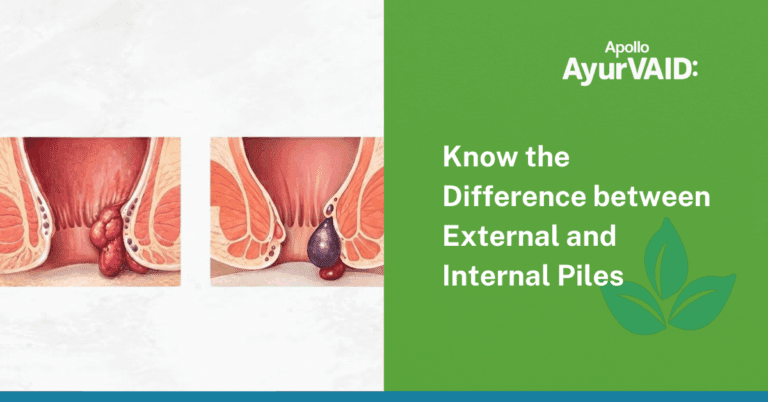
Web Stories
Step Into the Story: Explore Now
Introduction
We all experience work related stress. How can we create healthier work environments? When did you last check in on a colleague’s mental well-being? Or take a moment to assess your own? How do we determine where we should draw the line between professional dedication and personal well-being?
We often face long hours at work, high pressure, and constant digital exposure which are not in our control. But how to face these challenges and keep ourselves calm and productive is essential to have a healthier professional and personal life.
This year, World Mental Health Day, celebrated on October 10th and the theme for this year is ‘Mental Health at Work‘. On this day, let’s look at what we can do to make our workplaces a supportive and understanding one? What small steps can we all take today to make a difference? In this blog, find out how Ayurveda principles can help you become more resilient, productive, and live a more balanced professional and personal life.

Understanding Mind as per Ayurveda
Ayurveda describes three primary qualities of the mind, Manogunas. This is similar to the Tridosha concept. The manogunas are Sattva (calm and clear), Rajas (restless and aggressive), and Tamas (sluggish and confused) out of which Rajas and Tamas are considered as Mano Doshas. These mental states are closely linked to three physical aspects (3 Doshas) of the body: Vata, Pitta, and Kapha. If these mental states are out of balance, they can affect our physical aspect. For example, Pitta imbalance can result from excess anger at the workplace, anxiety can aggravate Vata Dosha, unhappiness can lead to Kapha imbalance. Rajas can be correlated to being aggressive, workaholic and restless, while tamas can make us sluggish, dull and lethargic. Overall, well-being depends on the balance between our mental states and physical aspects, because this harmony keeps us healthy in body and mind.
Ayurveda Practices to Improve Mental Health
- Pranayama (Breathing Exercises): As part of mental health day activities, incorporating breathing techniques into your daily routine will lower the stress. It will increase mental clarity/focus at work.
- Yoga Asanas: Seated Spinal Twist (Ardha Matsyendrasana), Seated Forward Bend (Upavistha Uttanasana), Seated Mountain Pose (Upavistha Tadasana) are the regular yoga postures that can help one to release mental stress and improve physical health.
- Mindfulness and Meditation: Mindfulness is stressed in Ayurveda as a way to manage stress. You can take a brief meditation breaks and spread mental health awareness among your colleagues to follow the same for more productivity.
- Dietary Recommendations: Sattvic food, including fresh fruits, leafy greens, raw nuts, and whole grains, will help promote mental clarity and reduce stress at work; avoid Rajasic food such as spicy dishes, coffees and processed snacks.
- Lifestyle Modifications: Following are a few effective ways to reduce stress at the workplace and improve your mental well-being:

Self-awareness and its Role
Knowing your strengths and limitations is important at the workplace. Open mindedness, quest to learn, forgiving others’ mistakes, supporting and motivating the team to achieve the goal, being empathetic to self and colleagues play a major role in maintaining harmony. Self-reflection and mindfulness will create better relationships and better stress management at the workplace.
Conclusion
As we observe World Mental Health Day 2024 and National Mental Health Awareness Day, we acknowledge the significance of mental health in the workplace. This blog is to equip you with some Ayurveda knowledge and tools to help you with your mental wellbeing at work. We are here to help you on your journey with practical Ayurveda tips for maintaining a healthy work life balance and expert insights on creating a positive work environment. It’s time to embrace these ancient practices to build a workplace where mental health thrives, not just today, but every day.
References:
- Khayamali DR, et al. Mental Health and Ayurveda: A Review. The Healer. 2023. doi: 10.51649/healer.132
- Sharma N, et al. RELEVANCE OF AYURVEDA CONCEPTS AND LIFESTYLE IN PROMOTING MENTAL HEALTH. Innovare Journal of Ayurveda Sciences. 2021. doi: 10.22159/ijas.2021.v9i4.40508
- Khan S, et al. AYURVEDA IN MENTAL HEALTH: AN ANCIENT INDIAN APPROACH TO HOLISTIC WELL-BEING. INTERNATIONAL JOURNAL OF SCIENTIFIC RESEARCH. 2023. doi: 10.36106/ijsr/4102361
- Sharma S. AYURVEDA FOR YOGA AND MENTAL HEALTH. International Ayurveda Medical Journal. 2024. doi: 10.46607/iamj1212042024
- Dnyaneshwar SSS. The Review on Medhya Dravya for Stress. International Journal of Science and Research (IJSR). 2024. doi: 10.21275/sr24327212718
- Seshan S, et al. A scientific evaluation of Mental Health through Ayurveda. Journal of Ayurveda and Integrated Medical Sciences. 2024. doi: 10.21760/jaims.9.2.22
- Garg R, et al. A REVIEW ON EMOTIONAL INTELLIGENCE THROUGH AYURVEDA LIFESTYLE. International Journal of Research in Ayurveda and Pharmacy. 2023. doi: 10.7897/2277-4343.1404116
- Behere P, et al. Ayurveda concepts related to psychotherapy. Indian Journal of Psychiatry. 2013;55:S310-S314. doi: 10.4103/0019-5545.105556






